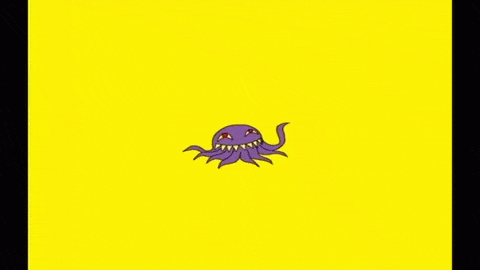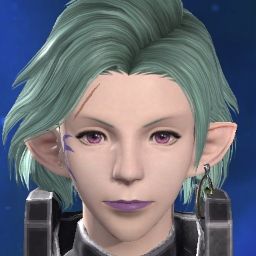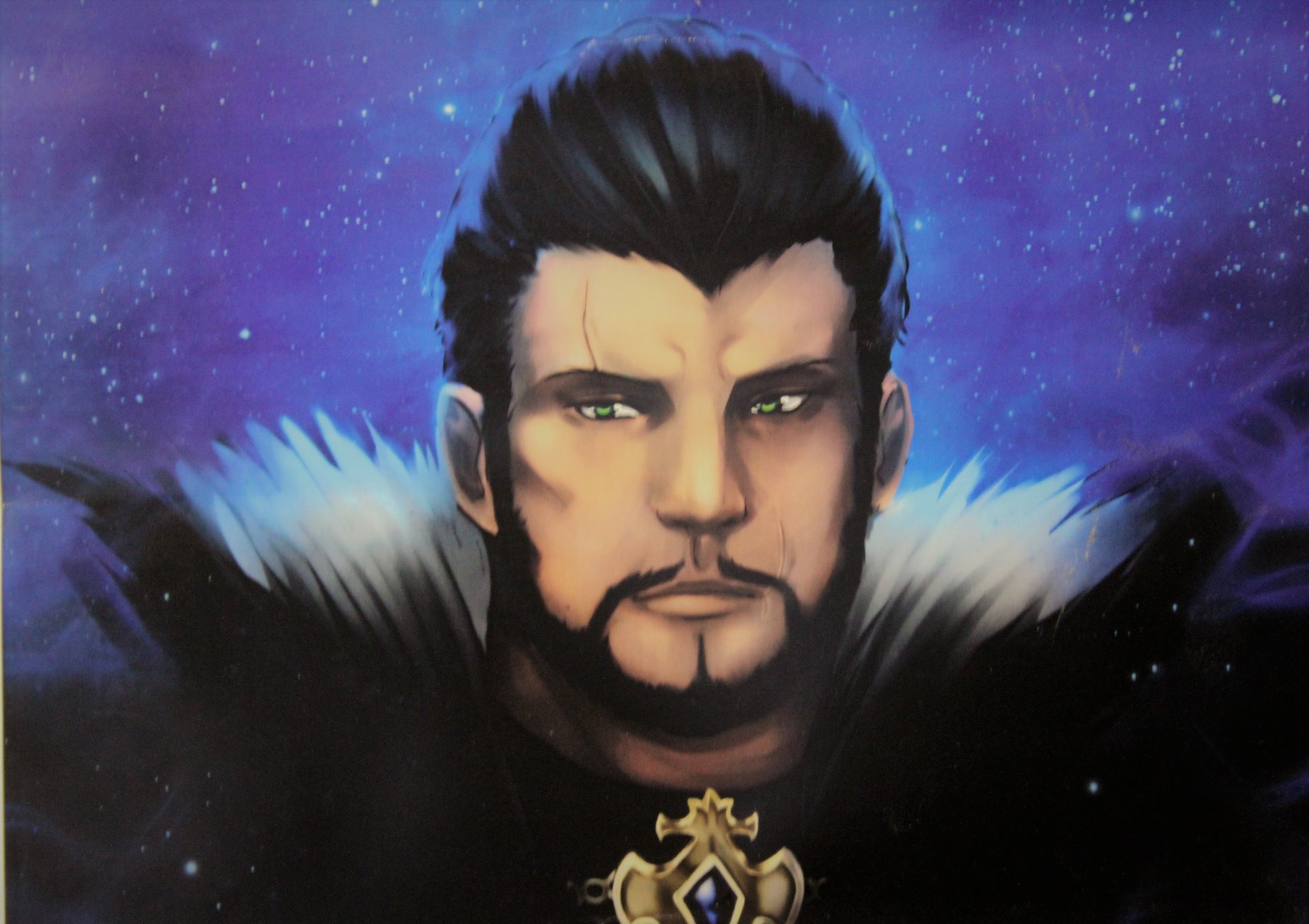Thread: Tales from the Dawn
-
08-27-2022 11:56 PM #71Player

- Join Date
- May 2014
- Location
- The Interdimensional Rift
- Posts
- 3,600
- Character
- Vicious Zvahl
- World
- Excalibur
- Main Class
- Machinist Lv 100
(6)
(Signature portrait by Amaipetisu)
"I thought that my invincible power would hold the world captive, leaving me in a freedom undisturbed. Thus night and day I worked at the chain with huge fires and cruel hard strokes. When at last the work was done and the links were complete and unbreakable, I found that it held me in its grip." - Rabindranath Tagore
-
08-28-2022 12:01 AM #72Player

- Join Date
- Nov 2016
- Location
- Limsa Lominsa
- Posts
- 973
- Character
- Miyo Mohzolhi
- World
- Sophia
- Main Class
- Scholar Lv 100
Hermes was an interesting case, because while it was clear he was depressed (and acting like a textbook example of mild depression), he didn't know what he was feeling, and could not put it into concrete descriptions. Which is kind of realistic for many cases of RL depression, so I didn't really think much of it at the time.
Also back during the Eden raids, Mitron was being way too clingy to what he believed Loghrif "should be", but again that's a (unfortunately) common thing in RL, so again I didn't think it was especially Ancient-specific.
But Pandemonium made me think further, because how Erichthonios acted, like he was guilty for having emotions about how his father Lahabrea had been treating him. And then there was Hesperos, who went way further with his envy and jealousy than was in any way reasonable. Erichthonios wondered if this was how Hesperos was actually like, and Hesperos confirmed it, but at the time of the Asphodelos raids I thought Hesperos was being influenced to be crazy.
And then the Abyssos raids happened, and Lahabrea literally ripped out his emotions to avoid having to deal with them. And Lahabrea also criticized Erichthonios for being angry at his father, like the anger itself was a weakness. At that point, suddenly I recalled all the previous examples, and while they are not definitive evidence, there is a lot of circumstantial evidence.
Ancients can be cheerful. They can be inquisitive. They can be playful. They can be irritated. They can be melancholy. But they apparently cannot be too much of any of those emotions, into exuberant joy or obsessive curiosity or chaotic rebellion or furious anger or despairing sorrow, because either they will be censured and criticized by their fellows (as we saw in Amaurot with the Ancient shade who scolds us for our individualized clothing), or they will end up hyperfocusing on that emotion to the point where they cannot return to reason on their own. I strongly suspect these two possible reactions are related; there may be a culture among the Ancients to expect the suppression of strong emotions, because it might be actually dangerous.
Given the Creation Magics of the Ancients, and what happened during the Final Days, and now what we see mentioned in this short story (Venat having to stop an out-of-control creation from a child), this cultural suppression of emotion may be justified, since it's obviously more dangerous than any loss of control that a Star Trek Vulcan might undergo.
The speculation then follows that because the Ancients had been suppressing their stronger emotions for so long, they have lost the institutional and societal knowledge of how to handle those strong emotions. Which led to the Dynamis Final Days, through Hermes not being able to find therapy (or more precisely, had friends around him who recognized what was happening and could then point him towards help), and now the whole mess with Pandemonium.
Even further speculation: this sheer outpouring of emotion was what led to Elidibus being spat back out of Zodiark, since it looked on the surface like another usual disagreement, but in this case strong emotions were being involved, and so the "Emissary" whose role was to resolve disputes could not succeed.
Wild linking speculation: the Ancients had to be careful with their emotions, or they could end up being Ara-Mitama-ed.(6)Last edited by YianKutku; 08-28-2022 at 12:01 AM. Reason: 3k character limit
-
08-28-2022 12:04 AM #73
-
08-28-2022 12:19 AM #74Player

- Join Date
- Feb 2018
- Posts
- 3,320
- Character
- Sanna Rosewood
- World
- Midgardsormr
- Main Class
- White Mage Lv 100
That makes a lot of sense really. That at one time or another might have known how to deal with said emotions. Yet felt that as a society they needed to repress said emotions due to their ability to use creation magics and how even the smallest things such as a stray thought or feeling could alter anything they created. To the point that over time they forgot how to deal with such strong emotions that some felt the very idea of seeking any kind of help or even dealing with them could in a way get "Big Brother" to crack down on you. Or if you were an Edwardian woman in need of a fainting chair at best. At worst sent to a sanitarium and most likely lobotomized. Or how many a generation of men got told that it's not manly to show certain emotions and that the best thing to do is to shove em down and hope they go away. The wild linking speculation also makes sense.
(4)
-
08-28-2022 12:25 AM #75Player

- Join Date
- May 2014
- Location
- The Interdimensional Rift
- Posts
- 3,600
- Character
- Vicious Zvahl
- World
- Excalibur
- Main Class
- Machinist Lv 100
He knew what he was feeling. He was just so sure that none of his peers felt the same way, due to the Elpis Flowers. As if he'd brought the whole of society to them, to see.
Lahabrea wasn't just ripping out his emotions. He was ripping out Athena's tendrils, too. For it was his love for her that swayed him into attempting the soul merge in the first place, in an effort to redeem his abuser.
It's obvious that emotions are dangerous for the Ancients, but why you use the qualifier, "Actually" for said danger is strange. Emotions to real people and to the Sunder are just as actually dangerous. In the real world, strong emotions lead to crimes of passion, namely murder. In game, in the Sundered world, the same thing goes. It was emotion that lead Ilberd to summon Shinryu. It was emotion that lead Severian to try and resurrect his lover in the Alchemist questline. There are many other examples both negative and positive.
There don't seem to be any institutions in the modern era for dealing with any of that, either.
With great power comes great responsibility.(14)
(Signature portrait by Amaipetisu)
"I thought that my invincible power would hold the world captive, leaving me in a freedom undisturbed. Thus night and day I worked at the chain with huge fires and cruel hard strokes. When at last the work was done and the links were complete and unbreakable, I found that it held me in its grip." - Rabindranath Tagore
-
08-28-2022 12:41 AM #76Player

- Join Date
- Oct 2013
- Location
- U'ldah
- Posts
- 320
- Character
- Lumei Asuran
- World
- Midgardsormr
- Main Class
- Pugilist Lv 90
I want to point out that the Amourat citizens whom all these narratives revolve around, were NOT the only intelligent thinking soul filled being in the world. We have proof of this many many times through the game and greater body of lore. The Convocation, Venat and her group, and all these people whom keep being referred to as "Ancients" were only ONE group that inhabited the planet. They lived in a capital city, and decided unilaterally that they were SUPERIOR to everyone and everything else that existed on that planet, and that THEIR view was the correct one. They were all sympathetic, but ultimately selfish god-like beings who changed the world at their whim.
This is one of the reasons, that the writers used the names of the Greek pantheon for their true names, and that the city is named Amourat in the first place. All the stories about the pre-sundered world are about Hubris.
Hermes hubris that he had the right to test everyone.
Emet-Selch's hubris that he knew everything.
Venat's hubris that she knew what was best for the greater good.
Lahabrea's hubris that he could live without emotions, as well as what was best for Eric.
The only person who has the moral high ground in this society was Azem, our Azem, because they were the only one whom wanted to just help people for the sake of helping people.(8)
-
08-28-2022 01:00 AM #77Player

- Join Date
- Aug 2019
- Posts
- 334
- Character
- Floria Aerinus
- World
- Balmung
- Main Class
- White Mage Lv 80
This is wrong. Other civilizations besides Amaurot existed, but they were comprised of the same species. We know this because we learn in The Tempest that they were also experiencing their creation magic going haywire before the phenomenon spread there.
Hell, in Elpis, it's made clear they don't even have a concept of sapient non-creations aside from themselves on multiple occasions with how they treat the player character.(17)Last edited by Lurina; 08-28-2022 at 10:33 AM.
-
08-28-2022 01:08 AM #78Player

- Join Date
- Sep 2021
- Location
- Solution Eight (it's not as good)
- Posts
- 3,029
- Character
- Ein Dose
- World
- Mateus
- Main Class
- Alchemist Lv 100
While you're broadly right, I should say that it's difficult to figure out how far 'Amaurot' goes. And by 'Amaurot' I mean the civilization that the city was a capital of, for clarification. All evidence does seem to suggest that the species we know of as the 'Ancients'--thirty feet tall, effectively immortal, creation magic--were the dominant species across the planet, because everything seems to suggest that there weren't meaningful differences--and the Ancient's overall self-image of superiority can be evidence of that, because they probably would've spoken of 'lesser people' had those people existed.
It's very hard to tell if the nation of Amaurot was a one-world government, or just the only one we heard about--basically, 'one relevant world government'. We do hear about other, smaller settlements in both the Azem and Venat short stories, as well as the places that already fell to the End of Days as of the Fake Amaurot snapshot, but there's never enough context to tell if they're another civilization entirely or if it's just a fair distance away. In real-world terms (because I think they're extremely useful metaphors to understand and contextualize this stuff, for people who wonder why I do throw those down), if Amaurot is modern Washington DC, we don't know if the volcano island Azem saved was Hawaii or New Zealand.
But what we DO know is that when the End of Days finally hit the city of Amaurot's shores, they decreed 'let's sacrifice half the planet to create a god'. That suggests one of three things:- That Amaurot genuinely was the major governing seat of the world,
- that at that point there wasn't much left so they assumed control over what was, or
- that there were other governments and societies around, but Amaurot doesn't care about their autonomy.
All three of those suggest the city of Amaurot had VERY big heads, although possibility 2 I could at least swallow if it were put to me in an actual story.
The underlining point of the Amaurot story has always been 'hubris', though, and we really shouldn't forget or neglect that. Amaurot was full of people making understandable human mistakes with dire consequences.(0)Last edited by Cleretic; 08-28-2022 at 01:12 AM.
-
08-28-2022 01:13 AM #79Player

- Join Date
- Jun 2014
- Posts
- 867
- Character
- Valamist Hurlstone
- World
- Phoenix
- Main Class
- Red Mage Lv 90
I feel people on both side of these arguments do sometimes forget that we are free to interpret fiction and themes however we wish. Its one of the most fascinating things about storytelling. A game or story will likely lead us in one direction in regards to who or what is more right or wrong, but we are still free to choose how we react to whatever concepts the author has inscribed into their work (I am very much an advocate for the idea that nothing is apolitical, every story takes a stance against its subject matter, no matter how much they may deny it). Someone who may disagree with the characters and actions is not automatically wrong. There have been some fascinating viewpoints that have come about from taking an opposition to Venant… but someone who does like what they did with her should also not be labelled as incapable of critical thinking, a mindless simp or Twelve forbid a genocide supporter.
It seems to be something that is getting a little more common in media critiquing nowadays, narrow viewpoints which damage such debates. You will find people who detest the idea of ‘simping’ or showing any interest in a character who is flawed or not immediately shown to be perfect. A piece of fiction needs to be ether a masterpiece or else it has failed and has no worth. There is no middle ground where something can be bad/not great but still interesting. Anything that dares to speak out on modern day issues is automatically declared worthless because ‘politics should not be in entertainment’ despite the fact that almost every story on Earth, from the first fables of mankind to someones erotic Cid X Nero fanfic, will have been molded by their experiences and views. The list goes on. I suppose its just an aspect of younger voices having more outlets to express their views on, and sure there is an ‘echo chamber’ element to it all but before anyone says different, forums are not the exception to that. I spent most of my Internet years on obscure sci-fi forums like this one, and they can get just as cliche and one-sided as Reddit or anywhere else.
Anyway, what was the point of this? Oh yeah. In the end its a video game story, and we are the very small amount of player who actually seek out an detail such things in detail. So write with passion and express your viewpoints on this story as best you can, but lets just try to be nice to each other and realise that we may not be as benevolent in our viewpoints as we think? That make sense? I dunno. I am gonna go play on my island whilst I try and work out just how that Shoehorn, specifically the one on the First, connects to Emet personally. Who do I contact to try and get a Tales from the Dawn story from its perspective?(9)
-
08-28-2022 01:16 AM #80Player

- Join Date
- Aug 2019
- Posts
- 334
- Character
- Floria Aerinus
- World
- Balmung
- Main Class
- White Mage Lv 80
It's unambiguous that there were other countries. The whole crux of the Debate and Discourse quest is the Amaurotines worrying about whether they have the right (/obligation) to intervene in the autonomy of another polity - a 'distant metropolis' 'across the pond' which the Final Days have struck first. They specifically draw a distinction between their societies. Go on Garland Tools and check out the text again.
By the way, I replied to your response from earlier, but it was after I'd slept and ended up at the bottom of a page.(14)Last edited by Lurina; 08-28-2022 at 01:40 AM.






 Reply With Quote
Reply With Quote







